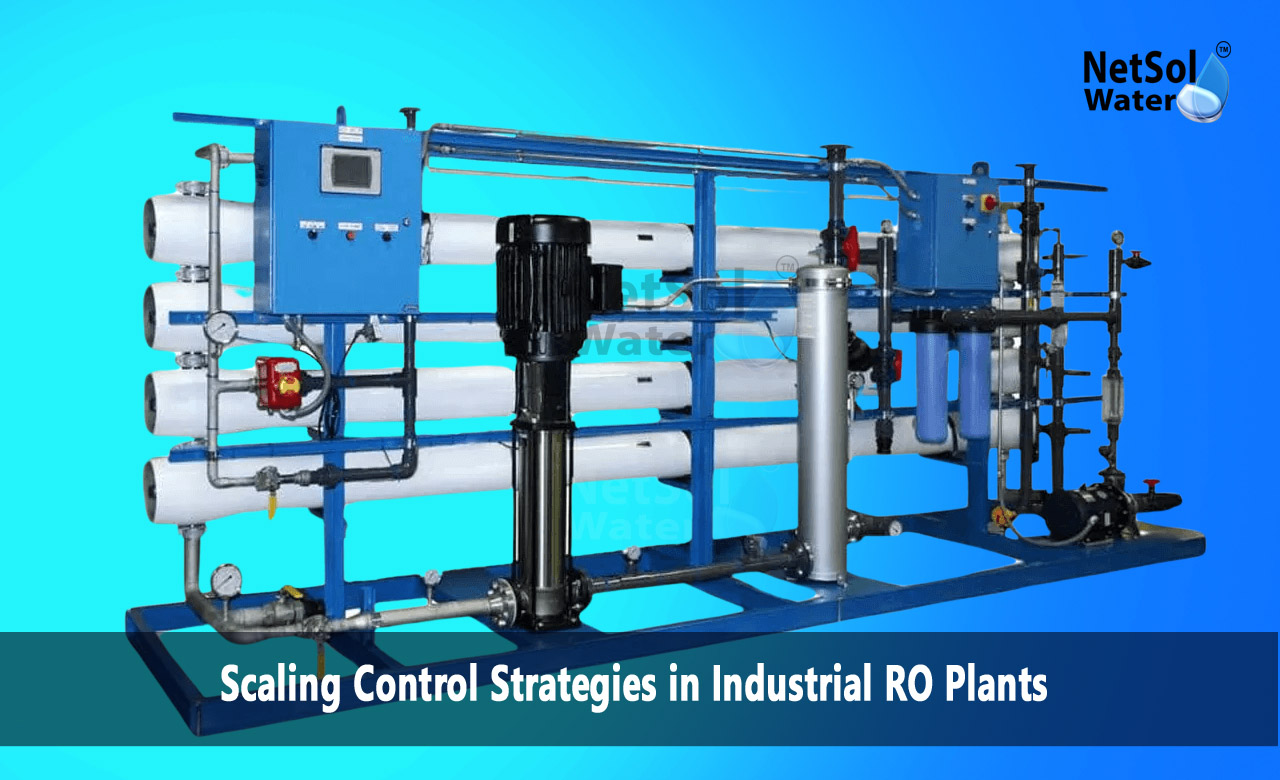What are the Scaling Control Strategies in Industrial RO Plants?
Scaling can reduce the efficiency of membranes in reverse osmosis plants. In an industrial plant a thin layer of mineral deposits can form on the membrane surface. This layer can lower water flow and raise energy use. Controlling scale helps keep the plant running smoothly and cuts down on unplanned shutdowns. Netsol Water stands as a leading manufacturer of industrial RO plants. We design systems that meet strict quality needs. Our team guides clients through every step of scale control.
We explore Scaling Control Strategies in Industrial RO Plants. We show how each method works and why it matters. We explain simple steps that plant operators can follow.
Pretreatment of Feed Water
Proper pretreatment can cut down scale risk at the start of the process. It sets the stage for healthy membrane life. Let us have a look at some common techniques.
Physical Screening
Physical screening removes large particles before they damage membranes. This step uses mesh or cartridge filters to trap sediment. By sending cleaner water into the RO unit we reduce fouling. Operators check screens at set intervals to ensure consistent flow.
Water Softening
Water softening swaps hardness ions for sodium ions. Exchanging calcium and magnesium limits the minerals that form scale. Softening extends membrane life and keeps system pressure low. Technicians monitor salt use and exchange cycles to maintain performance.
Antiscalant Dosing Techniques
Adding antiscalants can slow or stop scale formation on membranes. These chemicals interfere with crystal growth at low doses. Let us have a look at some dosing methods.
Continuous Dosing
Continuous dosing feeds a small amount of antiscalant into the feed line. This method keeps chemical levels steady. Plants using continuous dosing enjoy stable membranes and fewer spikes in pressure. Operators adjust feed pumps to match feed water flow.
Batch Dosing
Batch dosing injects a larger dose of antiscalant at set intervals. This method suits plants with variable feed water quality. It gives flexibility when hardness levels change over time. Staff test water before each batch to set the correct dose.
pH Adjustment and Chemical Control
Adjusting pH can shift scale solubility and prevent deposits. A small change in acidity can make a big difference. Let us have a look at some control options.
Acid Dosing
Acid dosing lowers pH to dissolve or prevent carbonate scale. Injecting acid into the feed stream helps keep minerals in solution. Operators use pH probes to measure and hold the set point. This practice reduces membrane cleaning needs.
Alkaline Dosing
Alkaline dosing raises pH to control silica or metal oxide scales. It suits water with high silica levels. By adding alkali we balance the feed water before it reaches the RO stage. Technicians calibrate dosing pumps to maintain ideal pH.
Online Monitoring and Maintenance Protocols
Real-time monitoring helps catch scale before it grows too thick. It lets teams act fast and avoid downtime. Let us have a look at some key tools.
Sensor Integration
Sensors measure pressure, flow, and conductivity on each membrane module. These readings show early signs of scaling. Control systems can trigger alerts when values cross set limits. Engineers then inspect membranes or adjust dosing rates.
Scheduled Cleaning
Regular cleaning restores membrane performance and removes any light scale. Plants set cleaning cycles based on runtime or sensor data. Operators choose chemical cleaners that match the type of fouling. This routine helps systems run at full capacity.
Conclusion
Scaling Control Strategies in Industrial RO Plants can boost run time and cut costs. Netsol Water proves that a smart design makes a big impact. We support clients with custom solutions that address each step of scale control. Contact us today for more details or to request a consultation. Let’s work together to keep your plant at peak performance with proven scaling control strategies.
Contact Netsol Water at:
Phone: +91-9650608473, Email: enquiry@netsolwater.com



